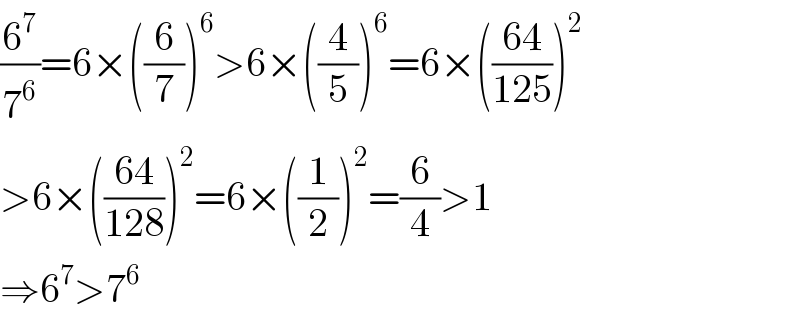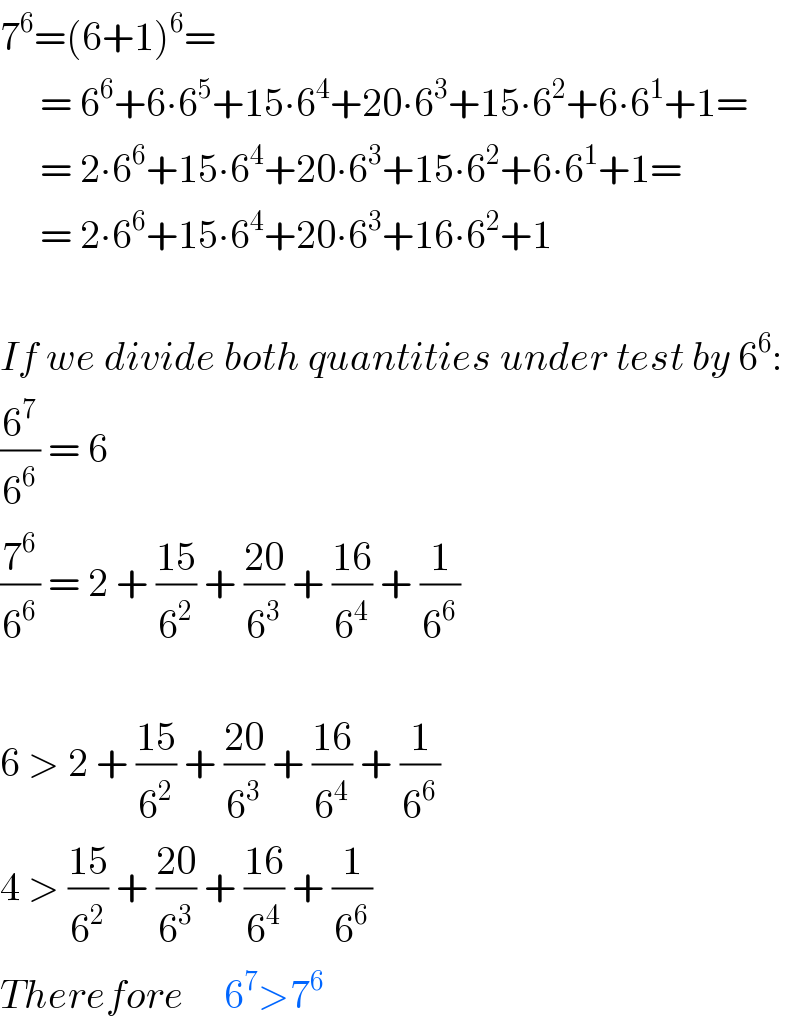
Question and Answers Forum
Question Number 105301 by Don08q last updated on 27/Jul/20

Answered by 1549442205PVT last updated on 28/Jul/20

Commented by Don08q last updated on 28/Jul/20

Answered by JDamian last updated on 27/Jul/20

Commented by Don08q last updated on 27/Jul/20

Commented by malwaan last updated on 27/Jul/20

Answered by mathmax by abdo last updated on 27/Jul/20
![for x and y naturels and x>y let compare x^y and y^x ⇒let compare ln(x^y ) and ln(y^x )(ln is increazing function..) let ϕ(x) =ylnx−xlny for y fixed we have y≥1 and x∈]y,+∞[ ϕ(y) =0 and lim_(x→+∞) ϕ(x) =lim_(x→+∞) x(y((lnx)/x)−lny) =−∞ ϕ^′ (x) =(y/x)−lny ⇒ϕ^(′′) (x) =−(y/x^2 )<0 ⇒ϕ^′ is decreazing and ϕ^′ (y) =1−lny <0 ⇒ϕ is decreazing ⇒ϕ(x)<0 ⇒ ylnx−xlny <0 ⇒ylnx<xlny ⇒x^y <y^x x=7 and y =6 x>y ⇒x^y <y^x ⇒7^6 <6^7](Q105337.png)
Commented by Don08q last updated on 28/Jul/20

Commented by abdomsup last updated on 28/Jul/20

